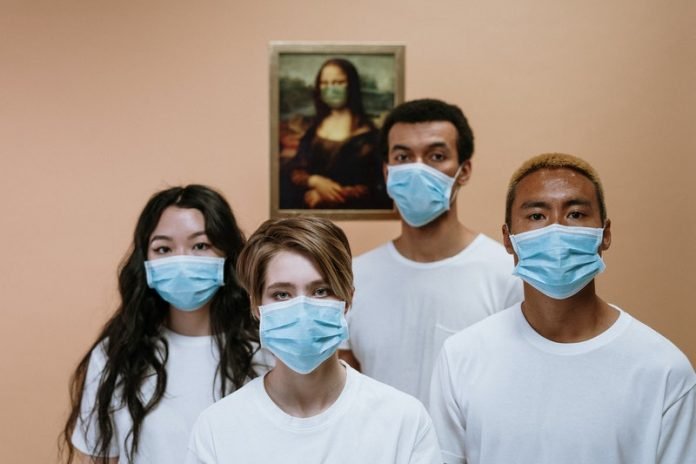
If close friends and family members who contracted COVID-19 had mild cases and recovered quickly, or if they had an adverse reaction to the vaccine, your brain might convince you that you’d have the same experience.
This phenomenon, known as “availability heuristic,” is one of a handful of cognitive shortcuts, which conserve brain energy and are generally understand to be positive and beneficial.
For example, an alternative route to work could save you time and fuel, or a mathematical method could aid you in solving an equation more efficiently.
However, in a new study from the University of Notre Dame, researchers found these cognitive shortcuts can be deadly during a pandemic.
In the study, the team examined the cognitive shortcuts that can affect how we assess risk and decide to behave in the face of the pandemic.
A second shortcut is known as “representativeness heuristic.” When the brain relies on this cognitive shortcut, it might tell you only elderly people are at risk of contracting COVID-19, despite an abundance of empirical evidence to the contrary.
Within this shortcut are two important subsets that can result in putting ourselves and others at risk.
The team says we may make erroneous assumptions via the “insensitivity to predictability” heuristic when.
For example, we believe a friend who currently has COVID-19 but is only experiencing mild symptoms isn’t spreading the virus and won’t suffer long-term health consequences.
Throughout the pandemic, authorities in many communities have sought to limit social gatherings to slow the spread of the virus.
When our brains use the “insensitivity to sample size” shortcut, we assume that infection rates among small gatherings is indicative of the overall population infection rate, which is false.
The “anchoring heuristic” refers to humans’ tendency to cling to initial information we receive about something, even when presented with updated information.
The authors give the example of people continuing to cite the inaccurate statement by the surgeon general early in the pandemic that masks are ineffective, despite subsequent studies that proved their effectiveness.
The team says fducation, awareness and further research on the role of heuristics in the spread of infectious disease should help to improve decision-making and reduce risky behavior during a pandemic.
If you care about COVID, please read studies that green tea may protect your body as a vaccine, and COVID-19 vaccines need to be shored up with a plant-based diet
For more information about health, please see recent studies that without masks, two meters distancing is not enough, and results showing that two vaccine doses after COVID-19 strongly boost antibody levels.
The study is published in Brain, Behavior, and Immunity and was conducted by Theodore Beauchaine et al.
Copyright © 2022 Knowridge Science Report. All rights reserved.



